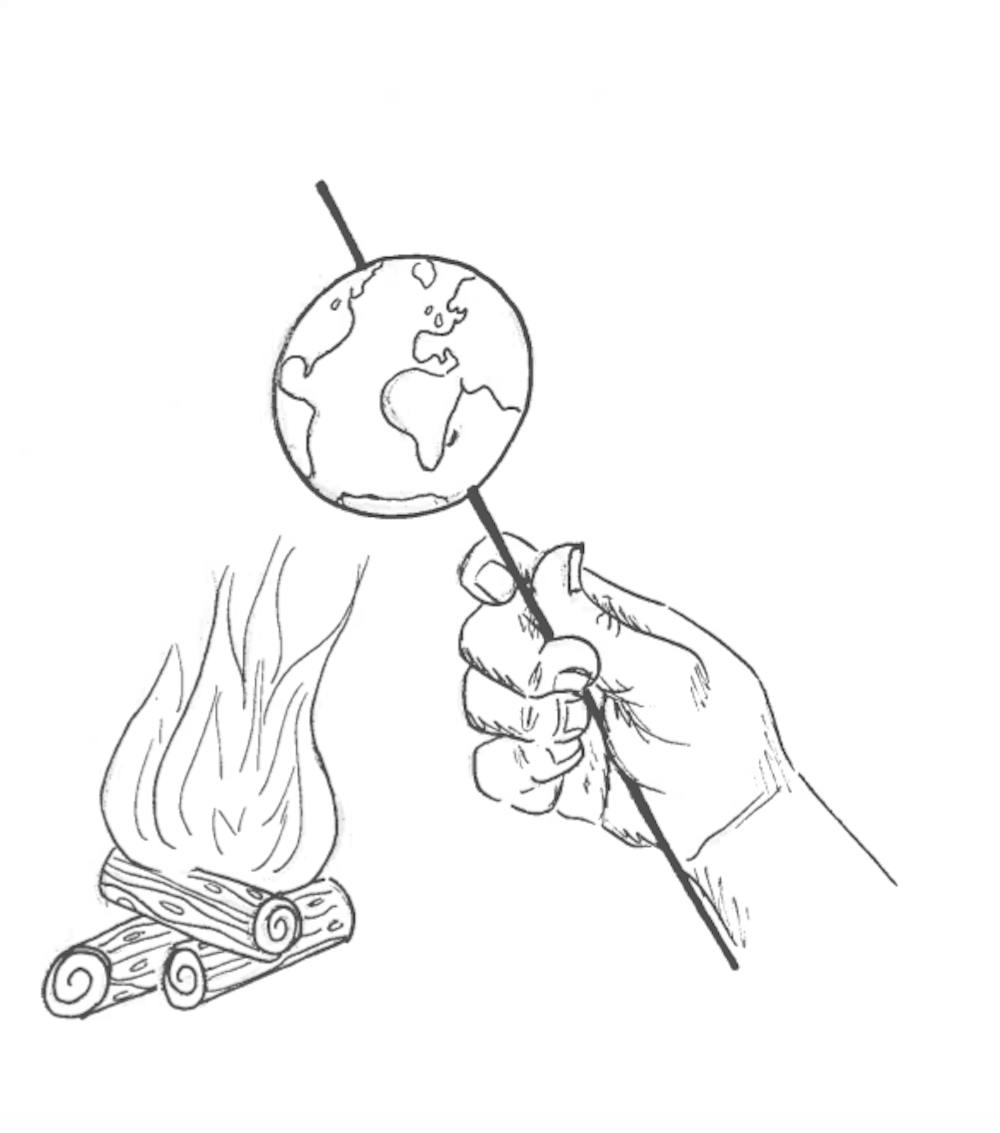I am not a climate change denier. Still, I struggle to connect with the green movement, and find myself lapsing in and out of doubt about proposed solutions such as the Green New Deal. While listening to Naomi Klein’s recent talk, I identified my position in the climate movement for the very first time. Klein described the movement as a “burning fire” which must shed away the “debris” of disapproval and disbelief. I rolled my eyes and thought, that’s me, the debris. She then said there are people at the margins of the issue who see the problem but are not committed to the cause. They are not debris — they are the people she hopes to reach in order to help fuel the fire. I am one of those people.
Why am I at the margin? How do I differ from my peers who are devoted to the movement? Klein’s words compelled me to ask myself these kinds of questions. The answer is that I cannot commit to a cause I only believe in sometimes.
I grew up in China, a country miles ahead of the U.S. in terms of the damage inflicted by anthropogenic climate change. In elementary school, I was taught about global warming. I made presentations of polar bears barely staying afloat in the melted glaciers. I saw pictures of factories emitting smoke that shrouded the sky. “Don’t let the last drop of water be our tear” read a slogan pasted in my elementary school bathroom. I had asthma because of the air pollution. To me, a “night sky” meant a subdued orange hue. The first thing my mom did in the morning was to check the PM2.5 scale for air quality. On days when the smog was most severe, we wore masks to school and were not allowed to play sports or go outside. In high school, I was told to use the phrase “climate change” instead of “global warming.” I remember thinking that was strange, because the earth is clearly warming, at least in China.
Growing up as the first generation of Chinese children most directly affected by human-induced climate change, it would be reasonable to assume that I am passionate about reversing its damages. Instead, the opposite is true: I have normalized climate change. I may have had asthma growing up, but so did all my friends. The smog was a nuisance, but we adjusted to it. The orange nights were accompanied by a spectacular skyline. As for the polar bears and the factories, I never actually saw them — they existed only in PowerPoints.
In high school, I took a quiz from the Global Footprint Network and learned that if everyone on earth lived like me, we would need six earths to sustain our consumption. I wasn’t proud of the result, but I knew if I wanted to see my family in China on holidays from boarding school, this is what it took.
And so I am not scared of the immediate effects of climate change because I have lived many of them myself. I know that our planet has exceeded its healthy temperature, but I also know that you can enjoy a childhood accompanied by inhalers and masks. I know that in times of crisis, I have adequate resources to combat the immediate damages.
And yet, as Naomi Klein stressed in her talk, these resources are not available to everyone. Perhaps I can’t see the permanent effects of climate change today, but I have begun to recognize the importance of equity and outreach at the flint of this movement. Klein’s talk made me realize how narrow my perspective has been up to this point. Climate change affects more than just me, my family, and my community; in fact, it affects everyone on this planet. It also often disproportionately affects those of greater age, or lower income.
As someone who needs six earths, I cannot be an activist and tell other people how to make the earth greener; I would be a hypocrite. I can, however, start by doing my small part. Right now, that means recognizing my place on the edge of the movement, so that maybe one day I will catch on fire too.
Rachel Lu is a member of the class of 2023.
I am not the debris

Comments



